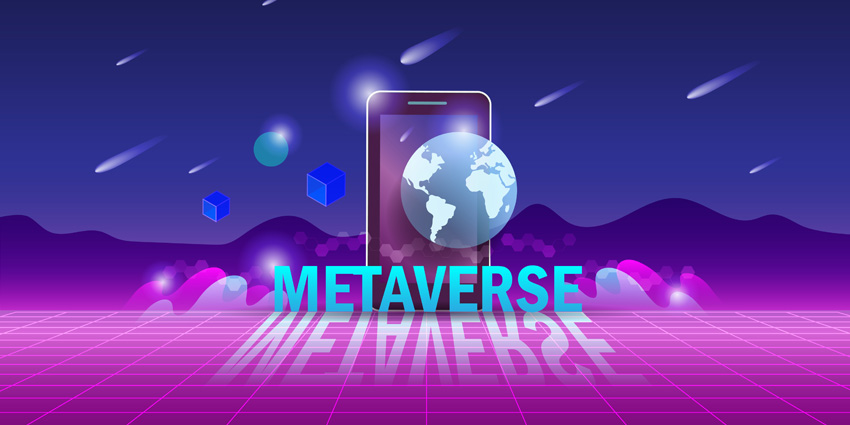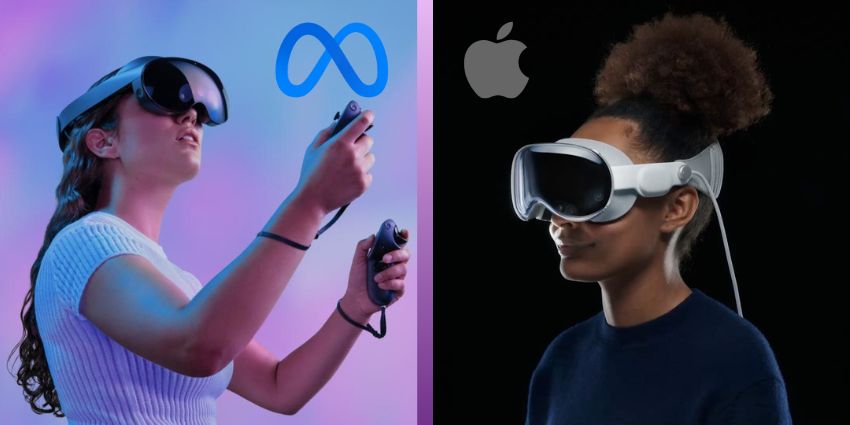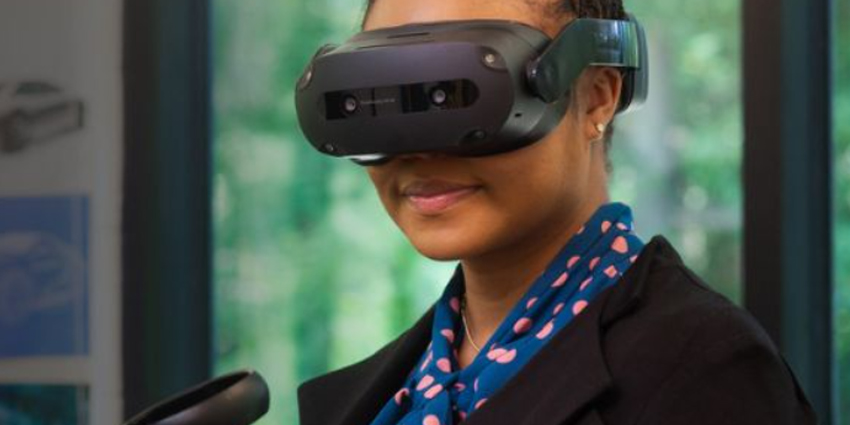The term ‘Metaverse’ first appeared in Neal Stephenson’s 1992 book Snow Crash. For several years, it was primarily limited to science fiction and, to a degree, gaming platforms that tried to recreate an immersive replica of the real world on digital platforms.
Recently, the Metaverse has gained momentum due to the launch of several blockchain-driven apps that decentralized virtual worlds – with major implications for the real estate industry.
What Is Digital Real Estate in the Metaverse?
The metaverse is a unified virtual world where users can interact with each other, using 3D avatars, and leverage human-computer interactions (HCI) to exchange information with the surrounding 3D world.
The virtual worlds inside the Metaverse comprise digital real estate segments called parcels, and one can buy and sell parcels using a Metaverse platform’s currency. For instance, one can purchase land on Decentraland through its cryptocurrency token MANA.
Investors have spent millions of dollars buying land in the Metaverse over the last few months. There is no denying that the technology has transformed how real estate operates, and there are even mortgage providers and lenders catering to customers buying digital real estate, leading to five key implications.
Implications of Digital Real Estate
1. It redefines the value of land and deprioritizes utility factor
In the real world, land is valued on three crucial factors – size, location, and real utility. However, in the Metaverse, one of these factors becomes less important than the rest: real utility is not as important when buying digital real estate, because the buyer will never actually inhabit the land or visit it in person.
The purpose of buying land in the Metaverse is to either develop it or lease it out to a third-party entity, and as a result, size and location become far more crucial driving factors.
2. It allows a wider pool of buyers to invest in real estate
Unlike the real world, anyone can invest in Metaverse land. Land parcels come in various shapes, sizes, and locations, and are available on a variety of platforms, each with a different price point.
Buyers from around the world can set up a cryptocurrency wallet of their choice and start investing. There are no barriers to buying global real estate and it is possible to purchase micro land parcels that are affordable for everyone.
3. It is forward-looking and anticipates the Metaverse will “blow up”
One of the key implications of digital real estate is that it assumes the growing popularity of Metaverse platforms. Companies like Samsung and PwC have purchased digital real estate in anticipation of a future where everyone uses the Metaverse. Eventually, as a few of the Metaverse platforms in development today gain wider adoption, other platforms could fall on the wayside, potentially adding to the element of risk.
4. It is a high-risk investment activity and could lead to losses
As mentioned, there is no guarantee that all Metaverse platforms attracting investments today will remain popular in the future, leading to digital real estate becoming a high-risk investment class.
Also, the inherent value of Metaverse land is still under discussion by analysts and in peer-reviewed forums. Since the utility factor is relatively low, some investors could witness losses in the long term.
5. It reimagines a host of real-world activities for metaverse land
As more land parcels go up for sale, there is a very real push to reimagine real-world activities for digital real estate. For example, trade shows and exhibitions have taken place in the Metaverse, with expansive event venues, sponsorships, and booths driving monetization.
It would be an immersive experience with opportunities for hands-on interactions, without requiring any travel or commuting. Similarly, social gatherings, weddings, and collaborative work could move to the Metaverse, putting digital real estate to practical use.
Metaverse Land Purchase Trends for 2022
Some of the top digital real estate trends for this year include:
- Expect over $1 billion in sales – According to reports, metaverse land sales have reached a record high of $500 million in 2021. Sales in 2022 could more than double, reaching at least $1 billion. However, the momentum could slow down as the year progresses.
- The market will be volatile, depending on industry movements – The market will continue to be volatile and fluctuate in response to industry movements and announcements from key players.
For example, as Meta’s shares declined at the beginning of 2022, there were concerns around the sale of digital real estate. Similarly, investors could expect some volatility if there are more announcements on major platforms like The Sandbox, Decentraland, Roblox, Bloktopia, and others.
- Corporates and luxury brands will be some of the early movers – Dedicated Metaverse investment firms and large corporates have been the top two early movers in digital real estate. The trend will continue in 2022, and we expect more of the Big Four to pick up metaverse land parcels.
- Events on metaverse land could become a staple – Most Metaverse platforms have their own event calendars, and Meta’s Horizon Venues is now widely available. As a result, events on digital real estate could become a staple in 2022. VR offers incredible experiential opportunities for hosted events, particularly concerts and art shows, and this trend could increase over time.
Understanding the Underlying Technology, Blockchain
Ultimately, the transformative potential of the Metaverse is due to its underlying blockchain architecture. Even without virtual surroundings, blockchain empowers real estate by assigning digital assets with non-fungible values.
Non-fungible tokens (NFTs) are an important asset class in their own right, even outside of the Metaverse. Digital real estate is traded as an NFT, bringing the same technology into virtual worlds.
Together, NFTs and VR allow buyers to invest in digital land that they can not only own, but also view in a 3D form, and interact with users without it having to be technically “real.”






